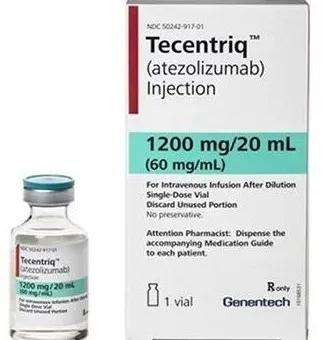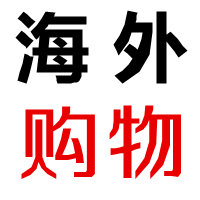瑞士阿特珠单抗/阿替利珠单抗(Atezolizumab) 如何正确服用?

阿特珠单抗OAK III期临床研究数据,二线治疗NSCLC(非小细胞肺癌)的中位OS(总生存期)达到13.8个月,优于多西他塞的9.6个月,而且各个亚组不管PD-L1表达程度、是否吸烟、是否鳞癌,甚至KRAS突变都能获益,惟有EGFR突变亚组中位OS不及多西他塞。2020年5月18日,阿特珠单抗获批,用于一线治疗PD-L1高表达且无EGFR或ALK基因突变的转移性非小细胞肺癌(NSCLC)成年患者。
Data from phase III clinical trials of Attezumab OAK showed that the median OS (overall survival) of second-line treatment in NSCLC was 13.8 months, better than the 9.6 months of docetaxel, and that each subgroup benefited regardless of PD-L1 expression, smoking, squamous cell carcinoma, and even KRAS mutation. Only the median OS of EGFR mutation subgroup was lower than that of docetaxel. Altezumab approved for first-line treatment in adult patients with metastatic non-small cell lung cancer (NSCLC) with high PD-L1 expression and without EGFR or ALK gene mutations.
印度代购提示您,本品阿特珠单抗如何使用?
对于当前的适应症,必须根据FDA批准的评估,确定为PD-L1高表达(TC≥50%或IC≥10%)且无EGFR或ALK基因突变的患者,才能接受阿特珠单抗治疗。阿特珠单抗治疗NSCLC 的推荐剂量为每2周840 mg,每3周1200 mg或每4周1680 mg,在60分钟内静脉注射给药。如果患者可以接受第一次输注,那么所有后续输注可以在30分钟内进行。不推荐减少阿特珠单抗的剂量。对于1级或2级输液反应,应减慢或中断输注,对于3级或4级输液反应,应永久中止输注。
印度代购提示您,本品阿特珠单抗可能会有哪些副作用?
肺部炎症(肺炎):症状可能包括新的或恶化的咳嗽、气短和胸痛。肝脏炎症(肝炎):症状可能包括皮肤或眼睛发黄、恶心、呕吐、出血或瘀伤、尿黑和胃痛。肠道炎症(结肠炎):症状可能包括腹泻(水样便、稀便或软便)、便血和胃痛。甲状腺、肾上腺和垂体炎症(甲状腺机能减退、甲状腺机能亢进、肾上腺功能不全或垂体炎):症状可能包括疲劳、体重减轻、体重增加、情绪变化、脱发、便秘、头晕、头痛、口渴增加、排尿增多和视力改变。脑炎症(脑炎)或脊髓和脑周围膜炎症(脑膜炎):症状可能包括颈部僵硬、头痛、发烧、发冷、呕吐、眼睛对光敏感、精神混乱和嗜睡。
Lung inflammation (pneumonia) : Symptoms may include a new or worsening cough, shortness of breath, and chest pain. Inflammation of the liver (hepatitis) : Symptoms may include yellowing of the skin or eyes, nausea, vomiting, bleeding or bruising, dark urine and stomach pain. Intestinal inflammation (colitis) : Symptoms may include diarrhea (watery, loose or soft stools), blood in the stool, and stomach pain. Thyroid, adrenal, and pituitary inflammation (hypothyroidism, hyperthyroidism, adrenal insufficiency, or hypophysis) : Symptoms may include fatigue, weight loss, weight gain, mood changes, hair loss, constipation, dizziness, headache, increased thirst, increased urination, and altered vision. Inflammation of the brain (encephalitis) or inflammation of the spinal cord and peribrain membrane (meningitis) : Symptoms may include neck stiffness, headache, fever, chills, vomiting, sensitivity to light, confusion and lethargy.





 咨询客服
咨询客服